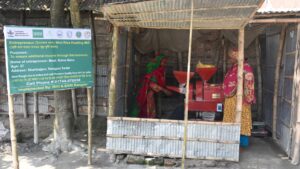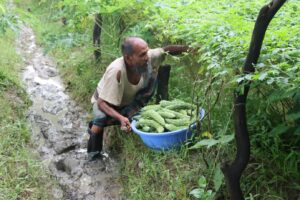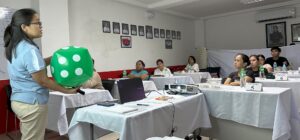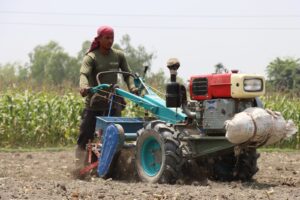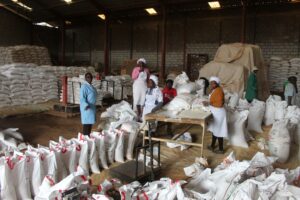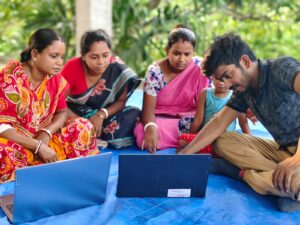Socio-technical innovation bundles (STIBs) are social, technical, and technological solutions partnered with institutional and policy instruments that recognize and address context-specific challenges.
Barrett (2021) explains that “Technological and institutional innovations in agri-food systems (AFS) over the past century have brought dramatic advances in human well-being worldwide.” However, they also recognize that these solutions are severely unsustainable because they damage the climate, nature, public health, and social justice. Women and young people in agriculture stand at the fore of its detrimental effects since they are more vulnerable to the stresses caused by climate change. Furthermore, global economic and environmental stresses such as the COVID-19 pandemic have only worsened the backsliding of the gains in achieving gender and social equality.
To combat this, the CGIAR Gender Equality Initiative aims to develop STIBs to help improve women’s empowerment and climate resilience in the Global South. This means women are treated as partners and drivers of climate change solutions. They co-design climate-smart innovations that can help tackle their communities’ vulnerabilities. They forward social protection programs and initiatives to leverage women’s roles in food systems governance, all with the ultimate goal of increasing climate resilience and reducing gender inequality.
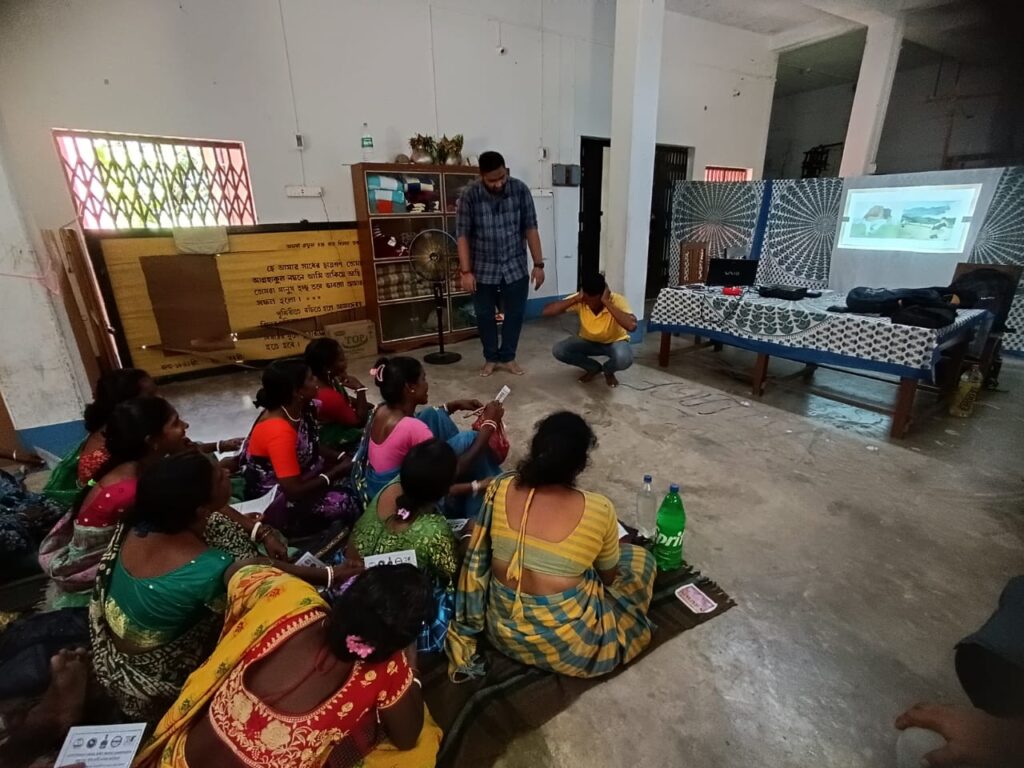
What sets it apart from other innovations?
“Socio-technical innovation bundling stays away from the blueprint model of technology transfer and calls for an open, inclusive, adaptive, and participatory innovation system that is built on the existing social, economic, and cultural practices and technologies as per the needs, priorities, and relevance to farmers’ livelihood systems.”, explains IRRI Senior Scientist Hom Gartaula. He further elaborates that STIBs are implemented systematically through multi-stakeholder, multi-sectoral, and multi-disciplinary platforms called learning labs, where researchers, policymakers, development practitioners, and women and men farmers can learn from each other and move towards achieving shared goals.
What are its applications in the field?
The CGIAR Gender Equality Initiative has been working with several national agricultural research and extension systems (NARES) actors, including women farmer groups, government and non-government organizations, and private sector agencies in the Global South to deliver a whole-of-systems intervention to inequality in food and agriculture systems accessible to women farmers.
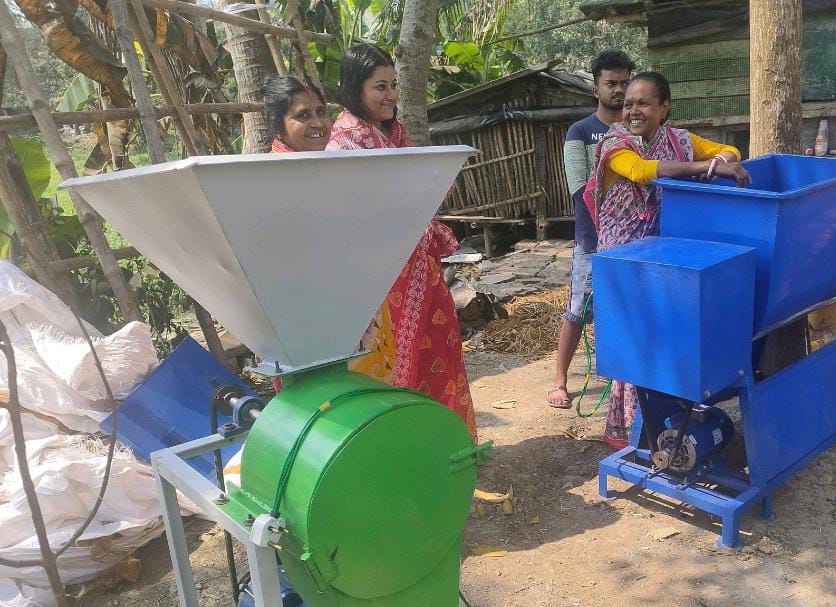
In a case study by the initiative, they looked into the delivery and impact of bundled innovations in four states in India: West Bengal, Uttar Pradesh, Maharashtra, and Gujarat. They partnered with non-government organizations to collect cases on how development practitioners use bundled technologies and innovations and how these bundles were introduced to farmers to make the agri-food system more equitable by empowering women and making them climate-resilient.
- Institute of Social Studies Trust (ISST) and Utthan
ISST and Utthan invited Krushi Sakhis (farmers trained on para-extension) as lead village farmers who will train other women farmers from Gujarat on sustainable farming practices. Krushi Sakhis empower other women by teaching them about their farming and land rights. They work with paralegal workers to inform and help the women farmers realize their land rights by helping them own land or be active participants in decision-making during the farming process. - Grameen Foundation India (GFI)
GFI worked in four districts of Uttar Pradesh to leverage women’s role in decision-making on the farm by helping them adopt new farming innovations. They appointed emerging women leaders as village mobilizers who encouraged other women farmers to adopt advanced biofortified mustard cultivation practices. They also partnered with Krishi Vigyan Kendra (KVK) and Banaras Hindu University (BHU) to provide the women farmer groups with technical training on the cultivation of biofortified crops. - Swayam Shikshan Prayog (SSP)
The SSP case focused on reducing gender inequalities for women farmers in Maharashtra by improving access to markets, federating women farmers, integrating technology into their capacity development, and teaching them about micro-irrigation models. They call this approach Women-led Climate-Resilient Farming (WCRF), where they put women at the center of learning and inspiring other farmers as women farmer leaders, also known as Krishi Samvad Sahayaks, who manage demonstration farms and act as facilitators between women farmers and local government officials. - Satmile Satish Club O Pathagar (SSCOP)
SSCOP promoted Conservation Agriculture-based Sustainable Intensification (CASI) to smallholder farmers by providing them training and capacity-building programs. They helped the farmers adopt productive and profitable farming systems with emphasis on de-risking women farmers. SSCOP also facilitated the establishment of Farmer Producer Organizations (FPO) with support from the National Bank for Agricultural and Rural Development (NABARD).
These case studies emphasized the importance of an integrated social, technical, and technological approach to addressing systemic gender issues in food and agricultural systems. Except for the SSCOP case, the ISSP-Utthan, SSP, and GFI cases intentionally bundled their interventions to ensure women farmers’ challenges are duly addressed. SSCOP eventually learned that through their self-help groups (SHG), they have helped increase women’s agency. Women farmers have started registering lands under their names, attended meetings to participate in decision-making processes, and learned about more sustainable farming practices.
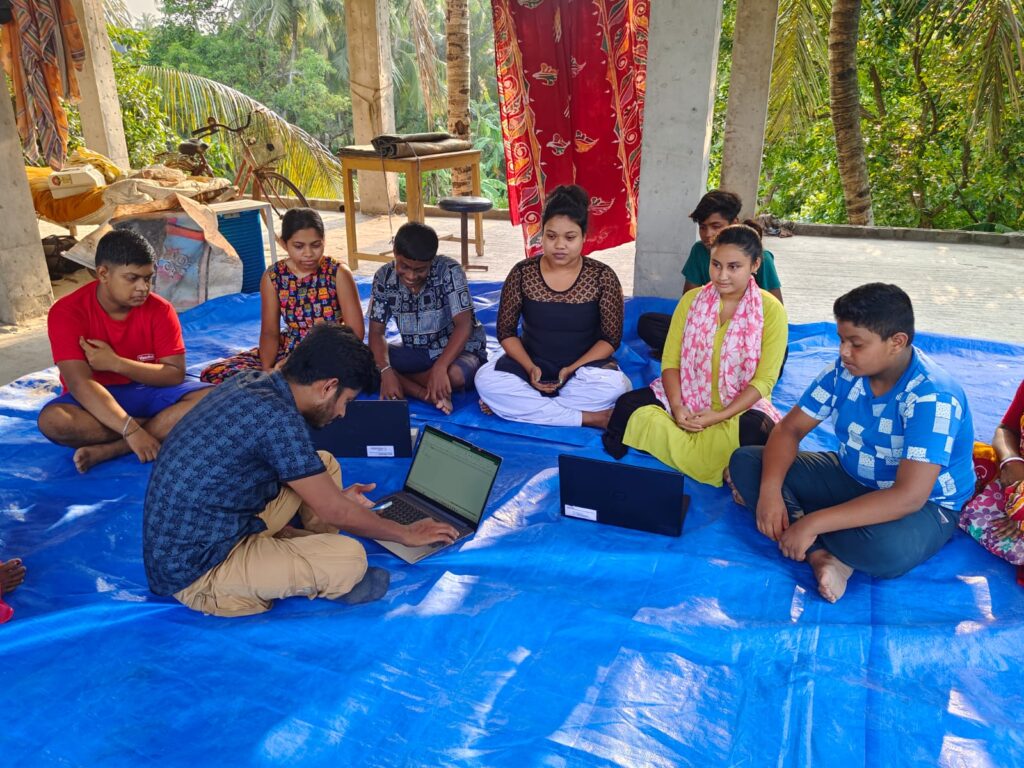
These cases underscore the need for designs to be gender-intentional. For example, SSCOP helped introduce a zero tillage and rice transplanter to a community. Out of the 50 women interviewed, only 29 adopted one or more technologies due to financial constraints. This was because the intervention only emphasized the technology and lacked a focus on the social and policy aspects of the solution. Beyond lending them technologies and passing policies, fostering an enabling environment for women is crucial in promoting climate-smart practices and technologies.
READ the report at Gartaula, H.N., Mukhopadhy, P., Chadha, D., Banerjee, M., Goel, K., Puskur, R. (2024). Bundling sociotechnical innovations to strengthen climate resilience of women farmers: Insights from India. New Delhi: CGIAR Initiative on Gender Equality, CGIAR Gender Impact Platform, and International Rice Research Institute. https://hdl.handle.net/10568/151917
Reference
Barrett, C. B., Benton, T., Fanzo, J., Herrero, M., Nelson, R. J., Bageant, E., Buckler, E., Cooper, K., Culotta, I., Fan, S., Gandhi, R., James, S., Kahn, M., Lawson-Lartego, L., Liu, J., Marshall, Q., Mason-D’Croz, D., Mathys, A., Mathys, C., … Wood, S. (2022). Socio-Technical Innovation Bundles for Agri-Food Systems Transformation. Springer International Publishing. https://doi.org/10.1007/978-3-030-88802-2


